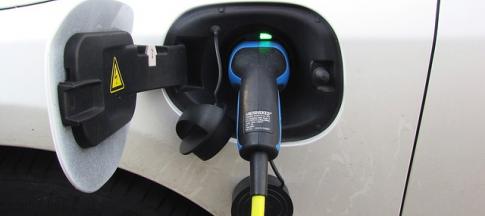
The UK government has pushed for electric vehicle (EV) and hybrid car uptake to lower emissions.
This means drivers get benefits like zero or reduced tax, lower servicing and reduced maintenance costs to offset their higher upfront costs.
We cover everything you need to know about MOTs for electric cars.
What's an electric car MOT?
The Ministry of Transport roadworthiness test (MOT) has expanded over the years to include additional checks and new vehicle types, like electric and hybrid cars.
The MOT for EVs works just like any other – to test for roadworthiness.
Do electric cars need an MOT?
Yes.
Like conventional petrol-and-diesel-powered vehicles, EVs require MOTs every year, three years after their first registration.
Do hybrid cars need an MOT?
Yes.
Vehicles need an MOT every year (if over three years old) to make sure they’re safe to drive on UK roads.
Hybrids, which have various degrees of electrification (mild hybrid, full hybrid and plug-in hybrid), are no different.
How do hybrid and EV MOTs differ?
The main difference is that EVs don’t have an internal combustion engine (ICE), so there's no exhaust system to check and no need for an emissions or noise test.
Currently, hybrid cars are exempt from emissions testing too.
Other than that, hybrid and electric cars have the same standard checks, including:
- brake pads and discs
- seatbelts
- windscreen
- wipers
- steering
- suspension
- tyres
- bodywork
- lights and indicators
Additional under-the-bonnet checks for EVs and hybrids include the high-voltage electric cabling, battery pack and electric motor.
How much is an EV MOT?
An electric car MOT costs the same as an ICE car.
According to the latest government guidance, test centres can’t charge more than £54.85 for a single MOT.
However, you can get it cheaper online or by contacting your local garages or auto centres.
The basic MOT charge doesn’t include additional repair work or parts; you might need these for your vehicle to pass it.
How much is a hybrid car MOT?
All MOTs cost the same price.
How to book MOTs for electric cars
You can find a list of all active MOT stations on GOV.UK.
The most common reasons for EV MOT failure
The most common reasons for EV MOT failure are:
- non-working lights
- indicators
- reflectors
- faulty or broken suspensions
- problems with brakes and tyres
- bad visibility (like cracks on windscreens)
You can carry out checks on your car before taking it in.
This can help solve simple problems beforehand and save money – we know how frustrating it can be for a car to fail its MOT due to a broken bulb or lack of windscreen washer fluid.
Make sure your EV is charged when you drop it off.
Is insurance cheaper for electric cars?
This depends on the model and your circumstances.
Read our electric car insurance mythbuster to find out more.
I'm an experienced journalist, digital editor and copywriter, now specialising in motoring. I’m editor of Automotive Blog and have worked across the media in newspapers, magazines, TV, teletext, radio and online for household names including the BBC, GMTV, ITV and MSN. I’ve produced digital content in the financial sector for Lloyds Bank, Nationwide and the Money Advice Service. I'm married with two children and live near Bath in Somerset.



